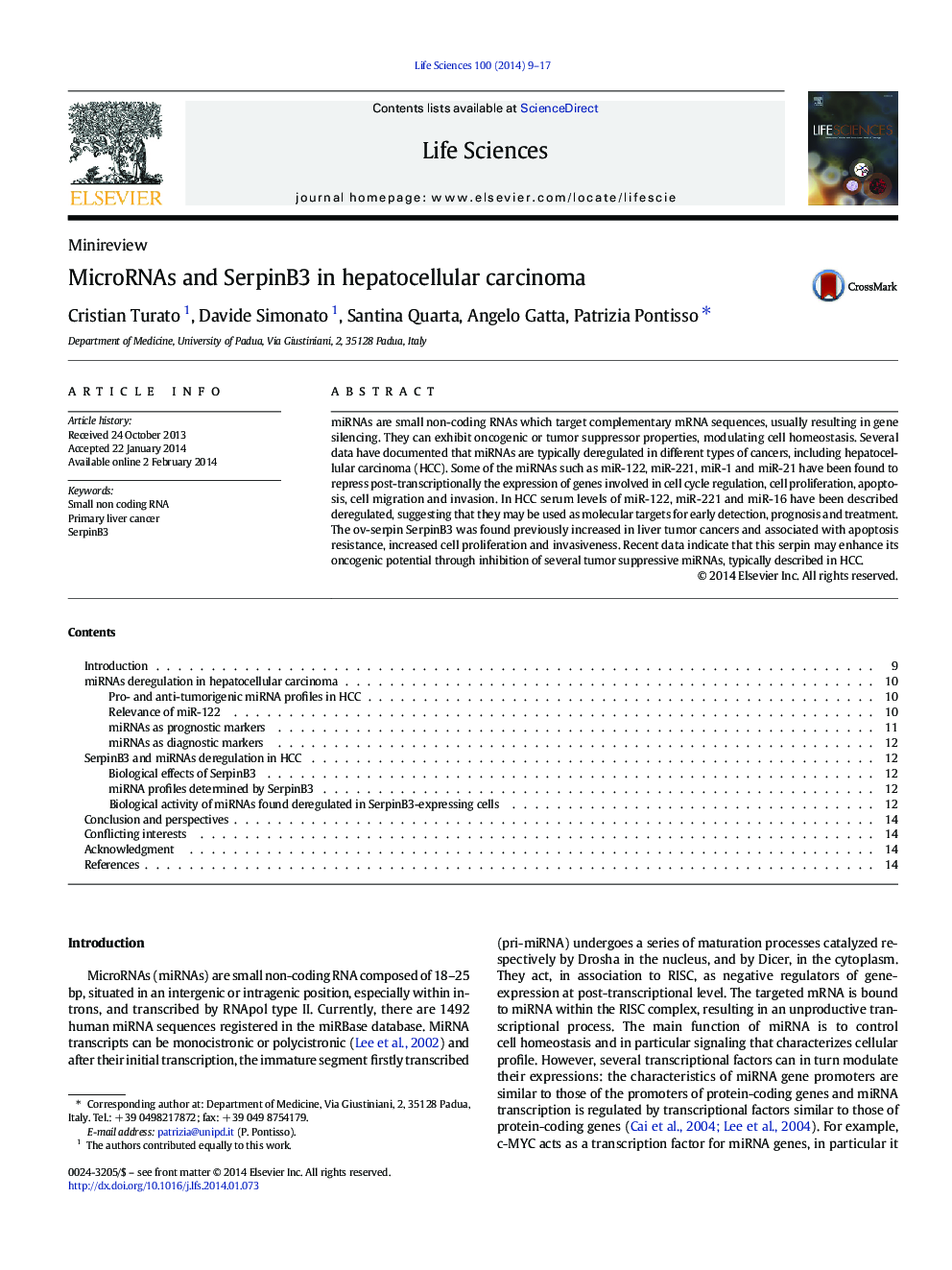| Article ID | Journal | Published Year | Pages | File Type |
|---|---|---|---|---|
| 2551330 | Life Sciences | 2014 | 9 Pages |
miRNAs are small non-coding RNAs which target complementary mRNA sequences, usually resulting in gene silencing. They can exhibit oncogenic or tumor suppressor properties, modulating cell homeostasis. Several data have documented that miRNAs are typically deregulated in different types of cancers, including hepatocellular carcinoma (HCC). Some of the miRNAs such as miR-122, miR-221, miR-1 and miR-21 have been found to repress post-transcriptionally the expression of genes involved in cell cycle regulation, cell proliferation, apoptosis, cell migration and invasion. In HCC serum levels of miR-122, miR-221 and miR-16 have been described deregulated, suggesting that they may be used as molecular targets for early detection, prognosis and treatment. The ov-serpin SerpinB3 was found previously increased in liver tumor cancers and associated with apoptosis resistance, increased cell proliferation and invasiveness. Recent data indicate that this serpin may enhance its oncogenic potential through inhibition of several tumor suppressive miRNAs, typically described in HCC.
Graphical abstractFigure optionsDownload full-size imageDownload high-quality image (160 K)Download as PowerPoint slide
